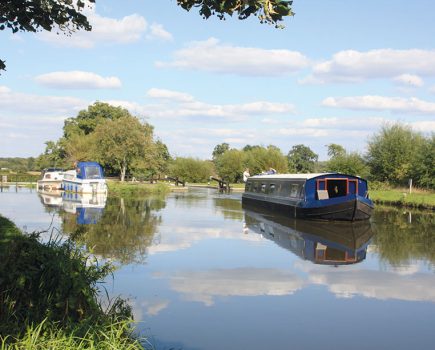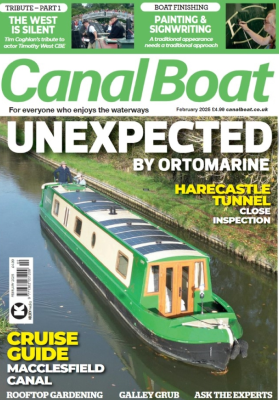CB columnist and award-winning current affairs TV producer, journalist and author Steve Haywood thinks the beautiful, bustling town of Lincoln is missing something very important

I was disappointed by my trip to Lincoln earlier this year. Not disappointed by Lincoln itself, oh no. How could anyone be disappointed by this stately city on a hill that stands out above its surrounding flatlands like the sails of an elegant Spanish galleon on a placid sea?
Lincoln is home to one of the most awe-inspiring cathedrals in the country and an imposing castle, where one of the few original copies of Magna Carta is held. It is a bustling town, packed with speciality shops, splendid restaurants and fine pubs. Lincoln – like Oxford, London, York and Lancaster – is one of the ‘must-sees’ for anyone on a canal boat. It’s the sort of city you earmark as a destination and build a holiday around. No-one could be disappointed by Lincoln.
No, what disappointed me about Lincoln was the dearth of mooring for cruising boats. I have said this before with reference to other cities, but it is intolerable to expect boats to travel long distances, perhaps over perilous waters, only to find nowhere to moor. And those lucky enough to get a spot may be told they can only stay in a place for 48 hours.
Lancaster has improved its provision for visiting boats since I complained about it a couple of years ago. And not before time. Asking boaters to hazard themselves o the Ribble Link, only to be told when they reached Lancaster that they had to move on after a couple of nights was disgraceful.
Sadly, the situation hasn’t improved in Oxford, where it’s a lottery to get a mooring. It’s not much better in London either.

York, I just give up on. As long as it has a pretty river with trip-boats, the rest of the boating community can go whistle in the wind for somewhere to stop outside of those periods when mooring in Museum Gardens is curtailed because of floods, which is most of the year. York doesn’t want visitors from the river. It has enough already.
In many ways, Lincoln epitomises the problem. It’s approached from the tidal Trent, which many boaters find tricky, and though there are miles and miles of bank on the approach to the city, it is all taken up by long-term moorings. The only space available to cruising craft before Brayford Pool is less than 100 yards, all of it 48 hours time-restricted.
Beyond Brayford Pool, after the famous Glory Hole, there are attractive short-term moorings. However, there’s been so much trouble with boats moored here – and further down where there are pig-ugly one-week moorings – that even the Canal & River Trust staff advise boats not to venture there.
And then there’s Brayford Pool itself, a large, pleasant marina taken up, again, by permanent moorings. There are short-term berths set aside, but at an eye-watering £10 a night.
Not that I needed to worry about price, though, as there was no room. The three or four spots seemingly earmarked for narrowboats (in the most unpleasant location in the place, under a busy bridge) were all taken.
This isn’t good enough. If CRT wants to encourage boaters to cruise rather than just sit in marinas, then it’s going to have to provide facilities at the places they want to go to.
Service blocks with showers and washing machines are all very well, but they’re futile if there’s nowhere to moor.
Surely CRT could eke out more moorings on a waterway as wide as this? And surely some could be week-long, even – perish the thought! – two weeks.
Brayeford Pool too could be organised better to provide regular longer-term moorings, especially at that price. It is no answer staff dissuading boaters from going to sites with known problems.
If there is drunkenness around particular pubs, then CRT should be entering into discussion with the breweries, police and council to control it. If there is vandalism at unattractive locations, maybe the locations should be visually improved so more boaters moor there, so providing safety in numbers.
As a city, Lincoln deserves more from CRT. And as boaters, so do we.
Next month, Steve Haywood goes through the ins and outs of the baseplate debate. Until then, you can follow him on Twitter.
Image(s) provided by:
Chris McKenna







